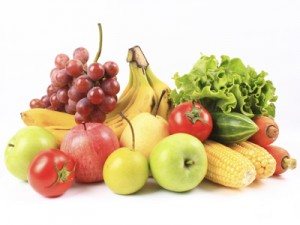 What most of us want is predictably consistent energy levels throughout the working day. What most of us get is a mid-afternoon lull. Why?
What most of us want is predictably consistent energy levels throughout the working day. What most of us get is a mid-afternoon lull. Why?
The answer lies in the food and drink choices we make for breakfast and lunch. Certain choices will leave us feeling low in energy, struggling to make any sense of our emails, struggling to concentrate throughout a 2-hour meeting. In terms of productivity and contributing to the business’ bottom line this is far from ideal.
The solution for predictably consistent energy throughout the working day is to reflect our natural circadian rhythm in our behaviours and our food and drink choices. Our circadian rhythm is our body’s natural clock. It is, in fact, an expression of the ebbs and flows of cortisol production, a crucial hormone in terms of keeping energy levels balanced. In short, you really don’t want to mess with your natural cortisol production and yet so much of our modern lives does just this. It’s not just food that’s involved in this though. Stress, over exercising, too little sleep can all muck about with our natural cortisol production. However, because cortisol levels are susceptible to changes in the levels of sugar in our blood, food and drink choices are extremely important considerations.
As soon as we start making food and drink choices that lack fibre, lack sufficient protein and stimulate levels of sugar production by being sugary themselves or by producing sugar in response to their consumption i.e. those pesky refined carbohydrates that we love the taste of so much, we end up disrupting the production of cortisol. What is the solution? It is to opt for foods that do not disrupt cortisol production. Foods such as eggs, meats, fish, nuts and seeds, good fats and most vegetables tend to help us experience normalised cortisol levels.
An ideal start to the day would be a breakfast that combines protein and fibre with slow-release carbohydrates. It will probably come as no surprise to find out that traditional breakfast classics such as porridge with autumn or summer fruits and eggs on rye toast are in but sugary puffed rice and honey and nut-coated cornflakes are out.
Stimulants are also an important consideration. Copious amounts of caffeine, nicotine, alcohol or even too much stress can disrupt the circadian rhythm. Common sense prevails here, moderation is the word.
Routine is important where meals are concerned too. In an ideal world we’d eat at roughly the same times each day. Whether you are a breakfast and lunch or a brunch person try to include a combination of wholegrains, vegetables and some protein in your lunch or brunch. The lunchtime meal deal of a sandwich, packet of crisps and a sweet “treat” is something we should look beyond in favour of just as quick solutions like wholegrain containing salads, tinned fish, fresh soup, dips such as hummus or tzatziki with vegetables or wholemeal pitta, nuts, seeds or popped corn in place of crisps, Greek yogurt and honey in place of a shop-bought sweetened yogurts, and fruit in place of sweet treats.
If you want more consistent energy throughout the working day, making food and drink choices that reflect your natural body clock is key. Try and find your natural rhythm and the meal timings and food and drink choices that best reflect this.
 About the author
About the author
Jenny Tschiesche, Nutrition Expert www.lunchboxdoctor.co.uk
Known as the Lunchbox Doctor, Jenny is passionate about educating families, schools, those in the workplace and elite sportspeople to eat healthy and nutritious meals to fuel their bodies. She aims to simplify the science behind good eating habits and through workshops and group sessions she educates using simple explanations and providing easy recommendations to promote healthy, economical and nutritious meals.




